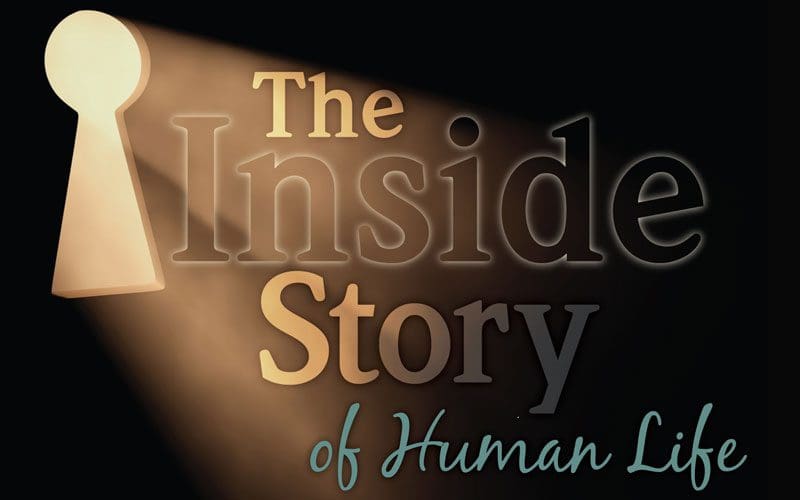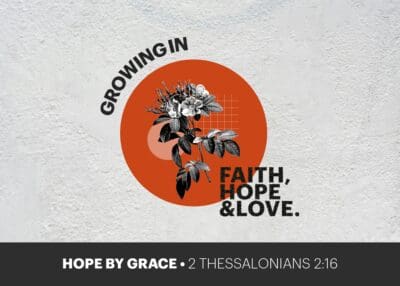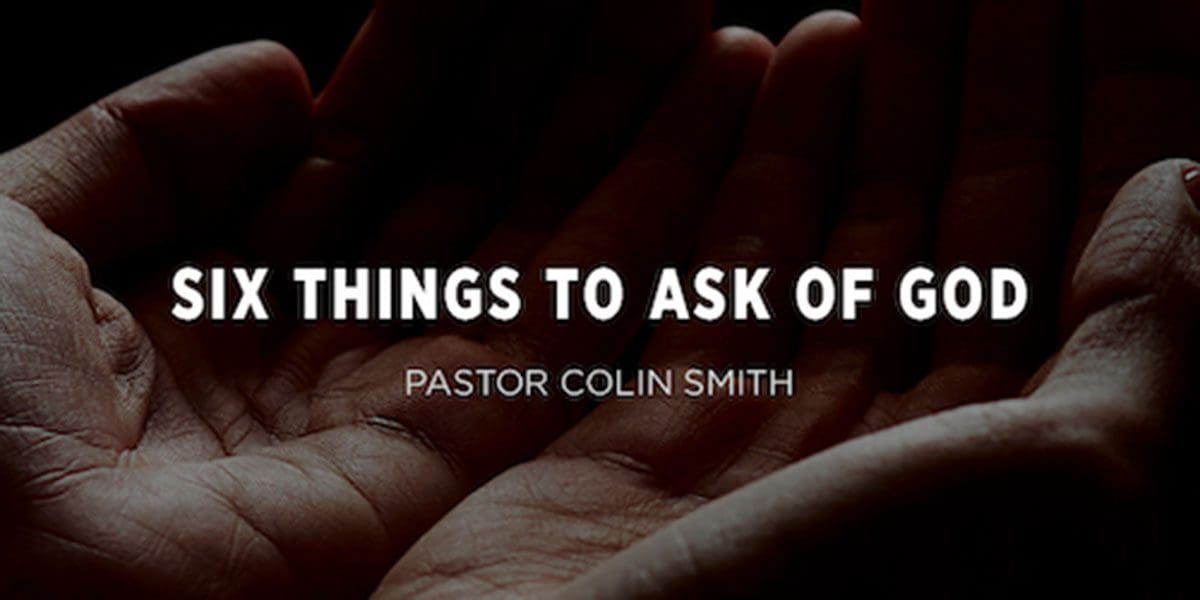“When Adam had lived 130 years, he had a son in his own likeness, in his own image; and he named him Seth.” Genesis 5:3
The theme of our series, “The Inside Story” is especially poignant this weekend as we mark the tenth anniversary of September 11th 2001. For many people that day brought pain, sorrow and irrecoverable loss. Many things were shaken, far beyond the twin towers, on that day.
In a PBS special this week, a thoughtful woman described the comfortable view of life she had adopted before 9/11: “Some people do bad things” she said. “But to me, evil was an adjective, not a noun.” Then she said, “I can no longer live with that explanation. I don’t know what I believe now, but on 9/11 I lost my easy answers.”
For some years now, secular education has been teaching our children and young people the postmodern myth that there is no such thing as good or evil, that everything is relative… What people call “good” and what people call “evil” is just culturally defined.
But on September 11th we saw the face of evil. This was too awful and too dark for a social or cultural explanation. People reared in relativism began searching for language and for categories that could describe what had happened. They found themselves saying, “This is evil.”
The foundations of relativism and postmodernism itself shook. Once you admit that there is evil, and that it is in human beings, you have to ask the question, “How did it get there?”
The inside story of sin’s development
That’s what we are looking at in this series—the inside story of human life. The book of Genesis tells us the story not only of sin’s origin, but also of its development. After Adam and Eve were expelled from God’s garden, sin grew.
The first family soon fractured. Adam and Eve had two sons, Cain and Abel (You can read their story in Genesis 4). Cain became angry towards Abel and murdered his own brother. The man who declined to offer a blood sacrifice ended up shedding the blood of his own brother.
It was an early sign of the devastation and destruction that sin would bring to the human family. Adam and Eve had other sons and daughters, and God’s grace allowed the growth and development of the human race. In Genesis 5, God gives an account of the generations that came from Adam.
Then we have an extraordinary statement of how sin multiplied and intensified as the human family grew, “The LORD saw how great man’s wickedness on the earth had become, and that every inclination of the thoughts of his heart was only evil all the time” (Genesis 6:5).
It is an extraordinary statement. God is telling us about the growth of evil in the human family. How great man’s wickedness had “become.” Evil became pervasive in society, and for this reason God sent the flood.
Genesis 6:5 is not saying that the world is always as bad as this. This world is not heaven, but it is not hell either. In the time of Noah, the world became so dark that “every inclination of people’s hearts was only evil all the time.”
How in the world did that happen? How did we get from one sin that Adam and Eve committed in the garden, to a world where every thought in the hearts of men was only evil all the time?
The difference between Adam and Seth
Today, we take the next step in following the inside story of the human race. I want to begin by drawing your attention to two verses in the early chapters of Genesis. The first is in Genesis 1:26. Last week, we saw from Ecclesiastes that “God made adam upright” (Ecclesiastes 7:29).
“Then God said, ‘Let us make man in our image, in our likeness…’ God created man in his own image, in the image of God he created him; male and female he created them” (Genesis 1:26-27). Adam and Eve were made in the image and likeness of God. God made “adam” upright.
Then Adam and Eve listened to the tempter. They sinned, setting their hearts on being their own god, and now they have children: “When Adam had lived 130 years, he had a son in his own likeness, in his own image; and he named him Seth” (Genesis 5:3).
Do you see the difference? Adam is created in the image of God, and his son still bears that image.[1] But Adam’s son also bears the image of his father, who is a sinner. God made Adam upright, but Adam became a sinner and his son is born in the father’s likeness. This is true down through the generations of human history.
Sons and daughters of Adam live with the enigma of the double image: Made in the image of God; born in the likeness of Adam. You need to know this double truth about yourself. You’re made in the image of God—that gives your life meaning, dignity and worth. You’re born in the likeness of Adam—you’re a sinner, alienated from God by nature. C. S. Lewis catches the enigma of the double image well…
“To come from the Lord Adam and the Lady Eve is both honor enough to erect the head of the poorest beggar, and shame enough to bow the shoulders of the greatest emperor on earth”[2]
This doctrine of the double image is foundational to the Christian faith, and it is of huge importance to our understanding of the world.
- Why is it wrong to fly a plane into the twin towers taking the lives of thousands of people?
If we are only developed animals who evolve by the survival of the fittest, how is that different from snuffing out a hornet’s nest? The answer is that men and women are made in the image of God. That is what gives every human being value and dignity and worth.
- Why do men made in the image of God perpetrate deeds of evil in the world?
We are born in the likeness of Adam, and we’re sinners by nature and by practice. We live in a dark and dangerous world. Nothing in this world is as it should be, and never will be this side of heaven.
Sin Is In Us By Nature
Adam came out of the hand of God upright, but Seth came out of the womb as you and I did. He was born in the likeness of his father and his mother, a sinner.
Poor Seth… and we are in the same position as he was. Sin was in his father and mother by their own choice. Sin was in him by nature and by birth, even before he started!
Not only was sin in him, but he was born into a fallen world. It’s effects were all around him. God placed Adam in a garden paradise. Seth was born outside paradise, in a world under the curse of sin, a world that would be marked by pain and suffering, a world in which the creation itself was groaning in frustration (Romans 8: 20).
Can you imagine Adam sitting down with little Seth, trying to come to terms with what is in the world, and with what is in him. Adam makes a fire and sits down, putting his arm around his son, “You ought to know son, that you have two brothers.”
“Really? Where are they?”
“One of them is dead.”
“How did he die?”
“Your other brother killed him. Your mother and I haven’t seen him since that day. He has become a restless wanderer on the earth.”
Sin is in all of us by nature. This is the truth about all of us, even the best of us. This was true even of King David, who was described as “a man after God’s own heart” (ref?).
He says, “Surely I was sinful at birth; sinful from the time my mother conceived me” (Psalm 51:5). He doesn’t mean that his mother conceived him through a sinful act. He means the new life conceived by David’s father and mother was the life of a sinner.
Sin runs in the blood; grace does not
We are all born alienated from God. I’ve often had a conversation that goes something like this, “Tell me, how did you become a Christian?” Answer: “I was born that way.” Maybe you’ve said something like this.
Friend, hear me: That is not possible! Nobody is born a Christian. You can be born a Jew. You can be born a Muslim. You can be born a Hindu. But you cannot be born a Christian. It’s impossible. Christianity does not run in the blood, sin does.
Jesus said, “Flesh gives birth to flesh. The Spirit gives birth to spirit… You must be born again” (John 3:6-7). You may say, “I come from a good family. I was born to Christian parents.” Friends, that’s my story. I come from a good family. I was born to Christian parents. But that did not make me a Christian. I was born a sinner.
Sin runs in the blood; grace does not. Some of us may have this the wrong way round. If you’ve been working on the assumption that grace runs in the blood, and sin does not, I plead with you to listen to the Bible today. You can’t ride into heaven on the faith of your parents or your friends, or simply by being connected in some way to the church. That’s why Jesus said, “You must be born again” (John 3:7).
Actually this is good news. If grace ran in the blood, then those who came from faithless families would have no hope. Sin is the great leveler. We are all sinners by nature and practice. We all stand on a level playing field before God, who offers grace to all in Jesus Christ—sinners—to whom God offers His grace in Jesus Christ.
No doctrine is more repugnant to the natural mind and heart than this. The sinful mind will never receive this. If you believe it, it is only because God has given you light. I pray, even as I speak, that God will give you grace to embrace this truth.
Many churches are actively erasing this truth. Confession of sin is quietly dropped from worship services. Massive tracts of Scripture that repeat this foundational truth are silently glossed over. There is an active movement today to rewrite the great hymns and erase this truth, because some believe that it is not positive enough for Sunday morning.
I plead with you to take this truth seriously today. If you cannot see the truth about yourself, you will not receive the great salvation that God offers to you in Christ.
Sin Is a Vicious Enemy
“Then the LORD said to Cain, ‘Why are you angry? Why is your face downcast? If you do what is right, will you not be accepted? But if you do not do what is right, sin is crouching at your door; it desires to have you, but you must master it.’” Genesis 4:7
Sin is like a wild animal, a predator, crouching at the door. God says to Cain, “It desires to have you.” Not only is sin present in every one of us by nature, but sin is a destructive power. It is an active enemy. It desires to have you.
This weekend, the homeland security forces with be on the highest alert because we have powerful enemies who would like to destroy us. They will always be hatching some new destructive scheme. The work of watching and intercepting these schemes is never done. That’s how it is with sin. But Cain didn’t listen, that’s why his life was destroyed by sin.
The crayon and the mold
Suppose you put fresh paint on a wall in your house, and a child marks a line of crayon over it. You can wash the wall and get rid of the crayon. If it’s really bad, you can paint over the wall—not that big a deal.
But suppose you have mold in your house. Painting over the mold won’t help. Our home took on some water, as many of yours did, during the heavy rains a few weeks ago. So, I am having fun cutting out dry wall.
A crayon leaves a mark that is easily dealt with. But mold is a living thing. It spreads—it will take your health. It will destroy your house. Some folks think that sin is like the crayon. When you mess up, cover it over, clean up the mess and move on.
But sin is not like a crayon—it is like the mold. The crayon is static; the mold is on the move—it spreads. It needs to be cut out or it’ll destroy your house. Sin is more than a list of things you’ve done wrong. If this is your notion of sin, you have not understood it from the Bible. It’s a living power, a vicious enemy, and it is at work in you and it is at work in me.
Are you taking the power of sin seriously in your life? This power is bigger, greater and stronger than you. Some years ago John Stott, who is now with the Lord, spoke at our church. He was a godly and gracious man marked by integrity, one of the most highly respected Christian leaders around the world.
His visit here was before my time, but several folks have told me about it and they all remember the same words that he said… “There is no sin that my flesh is not capable of committing within 30 minutes of leaving this church.”
Sin Leaves Us Needing the Intervention of God
“At that time, men began to call on the name of the Lord.” Genesis 4:26
This is the first mention of prayer in the entire Bible, “At that time…” What time? What was it that caused men to pray for the first time? When the destructive effects of sin became obvious in the world—broken families, violence, murder. Men saw evil in its ugly colors, and they began to ask God for help.
It doesn’t say that all men did this. All men will not ask God for help. But some did. They saw what sin was doing, and they knew that they needed to pray, “God we need your help. We’re facing incredible darkness. This is bigger than me.”
What does God do? Two things…
- God restrains sin
This world is not as bad as it could be. God restrains sin. If God took His hand away, it would be hell itself. As a matter of fact, that’s what hell is. How does God do that?
God restrains sin through law
If there were no laws our streets would not be safe. The law restrains sin. It is a good gift from God. Thank a policeman. Tell him or her they are a gift of God in a fallen world.
God restrains sin through conscience
Adam was a law to himself. He did not need the law because God wrote it in his heart. Even among those who do not acknowledge God, there is some residue of that impression. We call it “conscience.” So Paul says, “Their consciences bear witness” (Romans 2:15).
God restrains sin through common grace
This is not the same thing as saving grace. Common grace is the kindness of God to all people, just as He causes the sun to rise on all people, not just on those who love Him.
When you see a woman who has no time for God, but she is a good mother, you should thank God. Or when you see an atheist who shows kindness to an elderly neighbor, thank God for him.
Where does that come from? It is an echo, an evidence of the image of God. Every act of kindness ought to result in thanksgiving to God, even when it comes from an unbeliever.
God restrains sin through judgment
Sin is like a massive weed that would destroy the world except that God, in His kindness, cuts it back. He doesn’t destroy it, but He cuts it back.
That is what happened in the flood. When nations become intolerably evil, God sends revival or He causes that nation to fall. That is why the Bible says, “righteousness exalts a nation, but sin is a reproach to a people” (Proverbs 14:34).
- God redeems sinners
God cuts back the weed of sin. But the day is coming when He will pull it up by the root and cast the whole thing into the fire. Sin will be no more. There will be a new heaven and a new earth, the home of righteousness.
Suffering came into the world on the coat tails of sin. And when sin is excluded from the planet, suffering will go out on its coat tails too. There will be no death, mourning, crying or pain (Revelation 21:4). God will wipe away all tears from the eyes of His people.
How can sinners be in the home of righteousness? There’s only one way. When John the baptist began his ministry, he pointed to Jesus and he said, “Behold the lamb of God who takes away the sin of the world.” (John 1:29). The hope of the world lies in Jesus Christ, the Redeemer.
A woman spoke to me after the service on the Sunday after September 11th 10 years ago. She was very distressed. I had never seen her in the church before and I don’t recall seeing her since. She rushed up to me and she said “Pastor, pastor… How can I tell my children that they are safe?” I said to her, “You can’t. The world isn’t safe.” She looked completely stunned.
We need to learn to live in this world in such a way as to be prepared for the next. That’s what I need to do. That’s what you need to do. And that’s what we need to tell our children.
[1] Genesis 9:6 affirms that the image of God is still in fallen man.
[2] Cited by Phil Ryken: “Ecclesiastes: Why Everything Matters,” p. 178, Crossway, 2010





